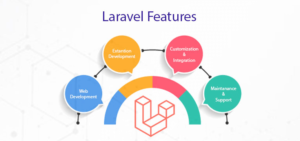Salesforce is a leading CRM platform that significantly enhances data analytics and reporting capabilities for businesses. By offering powerful tools and features, it enables organizations to convert basic data into useful conclusions. This ability to analyze and report on data effectively supports informed decision-making and drives business success. Join Salesforce Training in Chennai, which will enable you to gain comprehensive knowledge of Salesforce CRM.
Salesforce and Data Analytics
Salesforce is a highly rated CRM tool and is an essential tool in helping companies with data analytics. Integrated analytical models allow organizations to analyze their data and use it to help businesses. It enables users to get the data feed from several places and this is very important for customer profiling and sales as well as business operations. Salesforce also gives a clear indication of the kind of data it is dealing with together with other systems. Thus, they complement each other.
Enhanced Reporting Features
In earlier sections, there is no discussion about the strength of Salesforce. However, it has a reporting solution. The user inputs the type of report they want; the information is then in the form of a chart, graph or table. These reports can be categorized by the different business needs meaning that the information that is reported can easily be understood. Salesforce also supports the dashboard feature where a single view contains many reports. This improves the presentation of data which in turn makes it easier for the various teams to detect anomalies with ease.
Advanced Analytics with Einstein Analytics

Salesforce Einstein Analytics is another complex form of analytics that incorporates artificial intelligence in their work. It permits the users to view data solutions apart from conventional reporting. Using artificial intelligence, the decision-maker forecasts the potential outcomes and can take necessary measures ahead of time. Einstein Analytics is also interactive such that users are provided with an environment in which they can ask questions and get immediate answers, hence the more engaging method of processing information.
Automation of Data Processes
Salesforce automates many data processes, streamlining workflows and reducing manual effort. Automation features like data cleansing and preparation ensure that users work with high-quality data. Automated reports can be programmed to execute at designated times, delivering insights without requiring manual intervention. This effectiveness permits teams to prioritize data rather than managing it, ultimately enhancing productivity. Join Salesforce Training in Bangalore, designed to provide the knowledge and skills necessary for CRM and cloud-based technologies.
Integration with Third-Party Tools
Having already previously discussed the importance of third-party integrations for Salesforce, these tools amplify the platform’s data analytics and reporting-friendly functions. Companies are able to integrate Salesforce with analytics software, marketing automation software, ERP systems and many other sources of data. This integration gives a round view of business potential outcomes that enable functional teams to analyze data differently. Furthermore, Clate and Schmidt (2012) further identified that the Salesforce AppExchange marketplace has numerous analytics app alternatives that are seamlessly downloadable into present Salesforce implementations.
Customization and Flexibility
Here, we can identify numerous customizing features that Salesforce offers to organizations that enable them to adjust their data and analytical data to meet distinct organizational requirements. It allows users to set up key performance indicators (KPIs) suitable for a particular enterprise and build reports with reference to these indicators. New objects and fields can be generated in order to accommodate specific data values and the generated analytics would be unique to the organization’s needs. This helps the business to change the approach that it uses to plan for its data as it continues to transform.
Real-Time Analytics for Informed Decision-Making

One of the critical advantages of using Salesforce for data analytics is its real-time capabilities. It is real-time processing, where businesses can use the obtained data to address new adjustments in the market or customer preferences. Basically real-time analytics are handy for decision making as it allows teams to act on current trends rather than defunct information. This responsiveness is vital in today’s fast-paced business environment, where timely insights can significantly impact competitive advantage.
Data-Driven Culture Promotion
Salesforce encourages a data-driven culture within organizations. By making analytics and reporting tools easily available in the organization, people from different departments should be in a position to apply data in their operations. This democratization of data allows teams to be more proactive in strategy, and makes data integral to every aspect of business. Training resources and community support from Salesforce further enhance this culture, ensuring that employees are equipped to leverage data effectively.
Enhanced Collaboration Through Shared Insights
Salesforce is all about integration, and the analytics that it provides are integrated into a team effort on sharing of information. Users can provide access to reports and dashboards to their peers, allowing for analysis of data findings to be discussed with others. This increases the communication between different departments, so all the involved people will be on the same page with regards to the business performance indicators. Salesforce assumes cooperation through data sharing, which makes great organizational sense and establishes a consistent organizational approach throughout the organization.
Co-processing is also enhanced by Salesforce in which organizations are offered powerful tools and features to help them in their data analysis and reporting. Live analytical tools, integrating capabilities and user-friendly navigation make it a crucial business tool for companies working with their data. Overall, the use of Salesforce in organizations makes it easier to make decisions, can increase collaboration and create an organizational culture that is oriented towards sustainable development.



